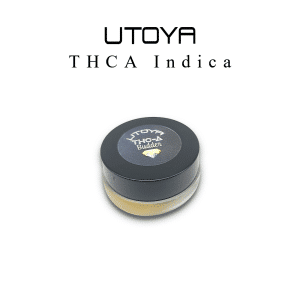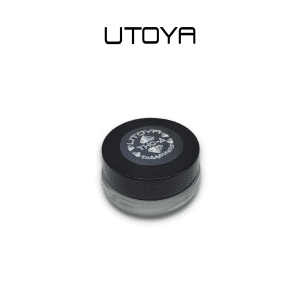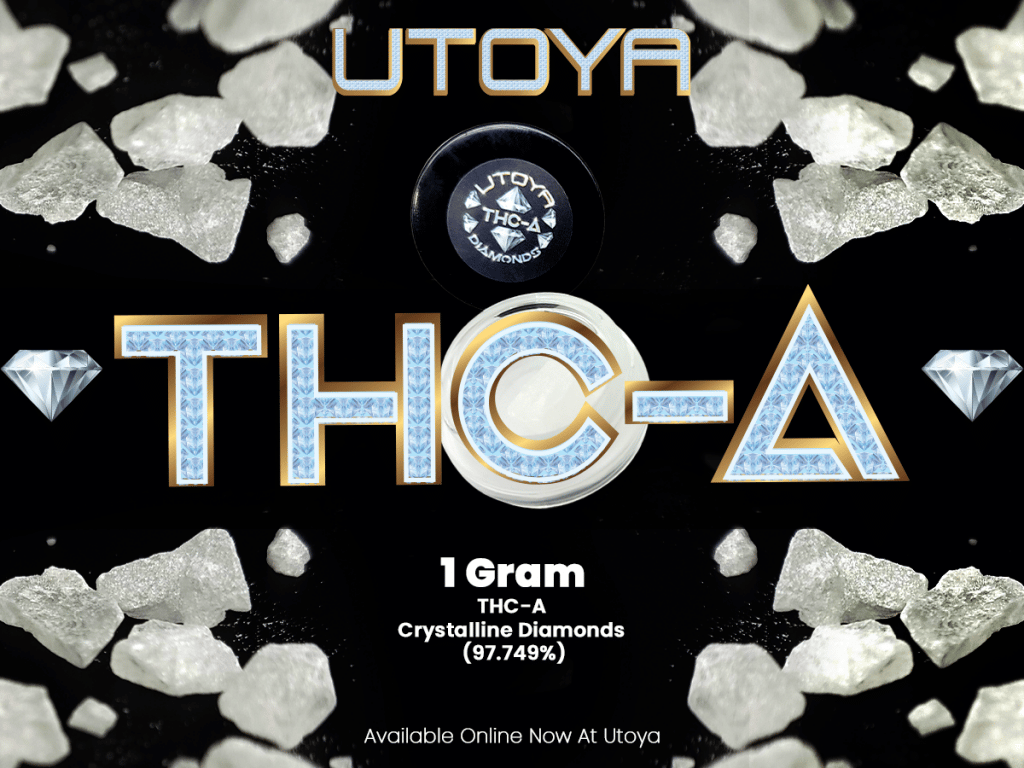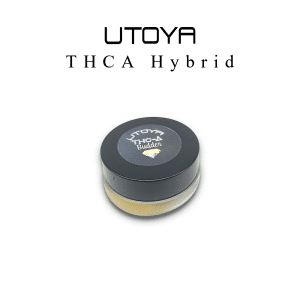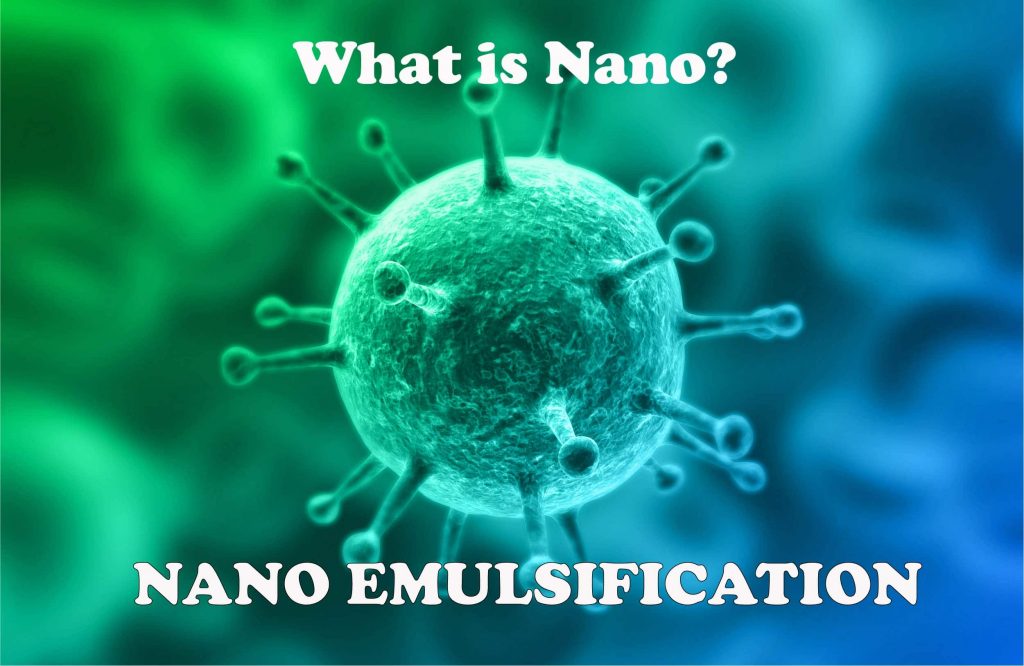THC-A: Everything You Need to Know
What Is THCA? Benefits, Uses, Risks, and More
THC-A is a very highly sought-after cannabinoid in both the hemp and cannabis industry, and it is important to understand what it is, how it works, and how you can expect to experience it.
Before getting started, we must be absolutely clear. Do not take what you read in this article as medical advice, do not delay in seeking medical advice or attention because of something you read on this website. Please be responsible with your health!
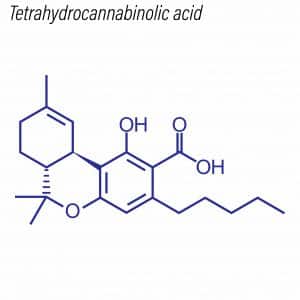
The math behind the typical conversion is: THCA Potency multiplied by 0.3.
Example: if I have THCA that is 99% potent, the math would be: 99*0.3 = 29.7.
29.7 = the potency of the converted delta 9 thc.
This math can be slightly altered, however, should you be looking for your maximum output, you have to have the perfect decarboxylization temperatures and environment. With the proper controls you will likely max out at potency*0.7=result. or 70% (this would require substantial effort to achieve). There is a maximum theoretical conversion of 87.7%, however, this would be considered incredibly difficult to achieve, even with advanced scientific equipment and expert experience.
Flower and THCA
For THCA flower, the math would look something like this: THCA Potency = 3.37% 3.37*0.3= 1.011% or 1% per gram. 1% is of the total potency itself. If the flower was measured out at 24%, you would have 0.0024mg per gram of Delta 9 THC.
The decarboxylization of THCA is 30 minutes at 230°F, or 9 minutes at 265°F
Why Decarbing THCA (or smoking thca flower) with a lighter doesn't really work that well
The heat of disposable butane lighters could potentially produce flames as hot as 4,074 degrees Fahrenheit, while their naphthalene counterparts could reach 4,591 degrees. This is far too hot and will destroy the THCA. That is why it is less likely for THCA flower to get someone high. Best to use brief exposure to quick bursts of the flame to get the better results while actively smoking. It is important to note that the presence of CBD in flower will curb the euphoric factors of THC.
Important Update [3/9/2023]: Type 1 and Type 2 flowers will have a different level of euphoric profile to each. Type 1 hemp flowers are much more effective at providing a high, where as Type 2 (the most common flower type in the hemp industry) is less capable of achieving euphoria similar to that of modern cannabis. Type 1 flower is the flower to seek when it comes to getting high on THCA Flower. It stands to note that some people may still feel a fair uplift from high THCA type 2 flower. You can learn more about this in our blog on Type 1 and Type 2 High THCA Flower.
Final Answer:
Dabbing THCA using a controlled temperature is the best way to get high with THCA. While THCA may ultimately enhance the overall experience of certain flowers,
What is THCA and what are the benefits of this cannabinoid?
THC-A, or tetrahydrocannabinolic acid, is a non-psychoactive compound found in the cannabis plant. It is the precursor to THC, the compound responsible for the plant’s psychoactive effects. The following “benefits” are not to be interpreted as medical benefits, medical advice, medical suggestion, or otherwise anything that should be used to make a medical decision. For your health and safety, speak with your primary care physician or doctor about THCA and your body. Do not use any information on this post to make any medical decisions.
Anti-inflammatory effects: THC-A has been shown to have anti-inflammatory properties.
Pain relief: THC-A may be effective in reducing pain and discomfort.
Anti-tumor effects: Some pre-clinical research suggests that THC-A may have anti-tumor effects and may be useful in the treatment of certain types of cancer.
Neuroprotective effects: THC-A may have neuroprotective properties that may be beneficial to be used for various reasons.
Appetite stimulation: THC-A may stimulate appetite, which can be beneficial for people experiencing appetite loss, or having a hard time eating. It may also be helpful with nausea.
Please note that most if not all of the research on the medical benefits of THC-A are pre-clinical and more studies are needed to confirm the potential benefits.
An attractive primary characteristics of THC-A is that it is not psychoactive, meaning it does not produce the “high” associated with THC. This can make THC-A an ideal option for those looking for the potential therapeutic benefits of cannabis without the mind-altering effects.
The conversion of THC-A to THC occurs when the compound is exposed to heat, a process called decarboxylation. This can happen through smoking, vaping, or cooking the cannabinoid or the flower. The resulting THC can then bind to the body’s endocannabinoid receptors, leading to the various effects associated with cannabis use.
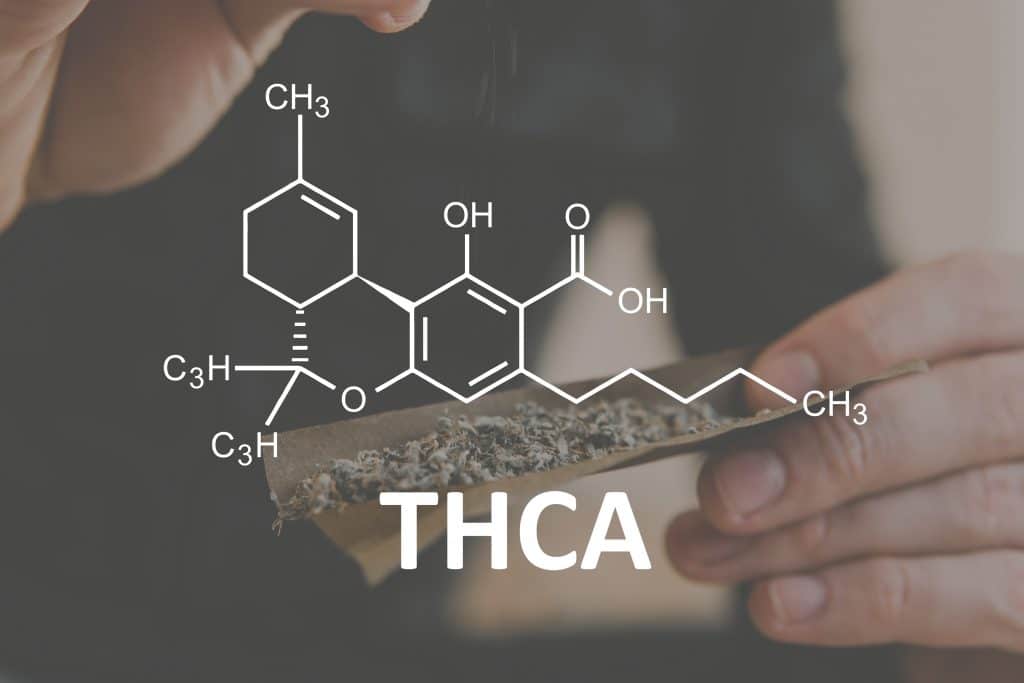
What is the best temperature to dab THC-A Diamonds at?
It is speculated that 550° F – 575° F is best temp to dab THC-A Diamonds.
A Reddit user claims that high-temp dabs will also work fine at around 600° F – 650° F, while others seem to float around 400 – 450.
Ultimately it will boil down to personal preference, but in the opinion of Joe, the person writing this, the temperature of 555°F was ideal.
Will THC-A hemp flower get you high?
Smoking high THCA hemp flowers can produce identical effects to modern cannabis flowers, however, it is important to keep in mind which flowers will achieve this effect and which ones will be milder in effect.
Type 1 high THCA hemp flower such as Platinum OG will create a euphoria that is akin to modern cannabis.
High THCA Type 2 flowers such as our Apple Jacks will produce a euphoria that is milder than that of our Platinum OG, but will still create a nice and enjoyable experience.
Type 2 flowers like Sour Hawaiian Haze do not have as much THCA as the other flowers, and so they make use of cannabinoids such as Delta 8 THC and THCP to help create the euphoric profiles you have come to know and love.
What is the conversion rate of THC-A to Delta 9 THC?
The conversion rate of THCa (tetrahydrocannabinolic acid) to delta-9-THC (the most psychoactive form of THC) can vary depending on various factors such as the method of heating or processing, the specific strain of cannabis, and the starting concentration of THCa. Generally speaking, the conversion rate of THCa to delta-9-THC is around 30-40% when using common methods of decarboxylation such as smoking or vaporizing.
It is also worth noting that the conversion rate of THCa to delta-9-THC can be affected by the duration and temperature of the decarboxylation process. A low and slow decarboxylation will typically yield a lower conversion rate compared to a higher and faster decarboxylation process.
It is further worth noting that conversion rates in the hemp flower may not be as important when considering Type 1 High THCA Hemp Flower.
How much THC-A is converted in hemp flower when smoked?
The conversion rate of THCa to THC in hemp flower is typically around 10-15% when using common methods of decarboxylation such as smoking or vaporizing. However, it is important to note that the concentration of THCa can vary greatly between different hemp strains and it also depends on how the hemp was grown, dried, and cured.
When considering the conversion rates in Type 1 flower, this may not be as important or necessary to create the euphoric experience. It is currently theorized that THCA in a type 1 hemp flower will have an efficacy that stands to be more effective than that of standard Delta 9 flower. The easiest way of explaining this theory is this quote: Delta 9 THC is to cannabis as THCA is to Hemp. This theory is not currently supported, recognized, or fully developed by any organizations outside of Utoya. This portion of the information is purely speculatory.
Also, it’s important to note that under the 2018 Farm Bill, hemp is defined as cannabis plants that contain less than 0.3% THC by dry weight, meaning that even if the conversion rate of THCA to THC is higher, it should still be well within legal limits.
What is the difference between THC and THC-A?
THC (tetrahydrocannabinol) is the psychoactive component of cannabis that produces the “high” associated with cannabis use. THCa (tetrahydrocannabinolic acid) is the non-psychoactive component of cannabis that is converted to THC when exposed to heat or through the process of decarboxylation. In other words, THCa is the precursor to THC, and it does not produce any psychoactive effects until it is heated or processed.
The amount of THCa that is converted into THC when considering hemp flower can vary depending on various factors such as the specific strain of hemp, the method of heating or processing, and the starting concentration of THCa. Generally speaking, the conversion rate of THCa to THC in hemp flower is typically lower compared to cannabis strains because the concentration of THCa in hemp is lower than in cannabis.
How THC-A Works In The Body
THC-A works by binding to the body’s endocannabinoid receptors, specifically CB1 receptors located in the brain and CB2 receptors located throughout the body. When THC-A is heated, it loses a carboxyl group and becomes delta-9 THC, which is responsible for the psychoactive effects of cannabis. The conversion rate in hemp is typically lower than that of medical cannabis, and the psychoactive effects are not significant in THC-A rich hemp flower.
THCA, like other cannabinoids, is metabolized by the body’s cytochrome P450 (CYP) enzymes, which are a family of enzymes that are responsible for metabolizing various substances, including drugs and endogenous compounds.
Research has shown that THCA is primarily metabolized by the CYP enzymes CYP1A1, CYP1A2, and CYP2C9. These enzymes are primarily responsible for converting THCA into THC, which is the psychoactive compound found in cannabis that is responsible for the plant’s characteristic “high.”
It is important to note that the metabolism of THCA and other cannabinoids is a complex process that is influenced by various factors, such as genetics, diet, and drug interactions. Therefore, more research is needed to fully understand the metabolism of THCA and its interactions with the cytochrome P450 enzymes.
What is the Half-Life of THC-A?
The half-life of THCA (Tetrahydrocannabinolic acid) is not well studied, but it is thought to be similar to THC (Tetrahydrocannabinol), which has a half-life of approximately 24-48 hours. However, it is important to note that half-life refers to the time it takes for half of a substance to be eliminated from the body and can vary depending on various factors such as dosage, method of administration, and individual differences in metabolism.
What is the difference between Delta 8 THC and THC-A?
Delta 8 THC and THC-A are both forms of THC (tetrahydrocannabinol), the primary psychoactive compound found in cannabis. While they have similar properties, there are some key differences between the two that are important to understand.
Delta 8 THC is a minor cannabinoid that is found in small quantities in the cannabis plant. It is similar to delta-9 THC, the most well-known form of THC, but it is less psychoactive. This means that it produces a milder “high” and has less potential for anxiety or paranoia. It is also less likely to show up on a drug test than delta-9 THC. Delta 8 THC is legal in some states but not in others.
THC-A, on the other hand, is the acidic precursor to delta-9 THC. It is found in high concentrations in raw and live cannabis, but it is not psychoactive until it is heated, a process called decarboxylation. When THC-A is heated, it loses a carboxyl group and becomes delta-9 THC. When consumed, THC-A has anti-inflammatory properties and can be used as a pain reliever and anti-inflammatory.
What are the names for THCA?
- delta(9)-Tetrahydrocannabinolic acid
- 9-Carboxy-thc
- 23978-85-0
- 9-Carboxy-delta(9)-thc
- Delta9-tetrahydrocannabinolic acid
- Tetrahydrocannabinolic acid
- CHEBI:67078
- EJ6CZV0K5Y
- (6ar,10ar)-1-hydroxy-6,6,9-trimethyl-3-pentyl-6a,7,8,10a-tetrahydro-6h-benzo[c]chromene-2-carboxylic acid
- delta9-tetrahydrocannabinolic acid A
- (6aR,10aR)-1-hydroxy-6,6,9-trimethyl-3-pentyl-6a,7,8,10a-tetrahydrobenzo[c]chromene-2-carboxylic acid
- 6H-Dibenzo(b,d)pyran-2-carboxylic acid, 6a,7,8,10a-tetrahydro-1-hydroxy-6,6,9-trimethyl-3-pentyl-, (6aR,10aR)-
- Thc-9-cooh
- THCA-A
- Delta9-tetrahydrocannabinolate
- UNII-EJ6CZV0K5Y
- Delta-9-Tetrahydrocannabinolic acid
- CHEMBL465718
- SCHEMBL6856735
- GTPL11091
- DTXSID30178701
- delta 9-Tetrahydrocannabinolic Acid A (THCA-A) 1000 microg/mL in Acetonitrile
- ZINC5821119
- BDBM50532210
- 6H-Dibenzo(b,d)pyran-2-carboxylic acid, 6abeta,7,8,10a-tetrahydro-1-hydroxy-6,6,9-trimethyl-3-pentyl-, (6aR-trans)-
- .DELTA.9-TETRAHYDROCANNABINOLIC ACID
- DELTA-9-TETRAHYDROCANNABINOLIC ACID A
- C21903
- .DELTA.9-TETRAHYDROCANNABINOLCARBOXYLIC ACID
- Q7706541
- DELTA(9)-TETRAHYDROCANNABINOLIC ACID [WHO-DD]
- (-)-.DELTA.9-TRANS-TETRAHYDROCANNABINOLIC ACID
- Delta9-Tetrahydrocannabinolic acid A, analytical standard
- Delta9-Tetrahydrocannabinolic acid 250 microg/mL in Acetonitrile
- (6ar,10ar)-1-hydroxy-6,6,9-trimethyl-3-pentyl-6a,7,8,10a-tetrahydrobenzo [c]chromene-2-carboxylic acid
- 6H-DIBENZO(B,D)PYRAN-2-CARBOXYLIC ACID, 6A,7,8,10A-TETRAHYDRO-1-HYDROXY-6,6,9-TRIMETHYL-3-PENTYL-, (6AR-TRANS)-
Is THC-A Hemp Flower the next big thing in hemp?
THCa flower, also known as raw flower, is a semi-psychoactive form of hemp that contains high levels of THCa (tetrahydrocannabinolic acid), the precursor to THC. It is considered the next big thing in hemp because it offers several potential benefits over traditional hemp products, such as:
High THCa flower produces a similar “high” associated with THC, making it a suitable option for those who want to experience similar euphoria to modern cannabis without the need for a medical cannabis card. Keep in mind that there is a difference between type 1 and type 2 flowers.
- Versatility: THCa flower can be consumed in a variety of ways, such as by smoking, vaporizing, or consuming it as a tincture.
Sustainability: THCa flower can be consumed as raw flower, which is the most natural form of hemp, and does not require any chemical extraction or other processing, making it more sustainable than other hemp products.
Legal: As hemp-derived products with less than 0.3% THC are legal under the 2018 Farm Bill, THCa flower is legal for consumption and sale in the U.S.
What is the legality of THC-A?
With regard to the currently active 2018 Farm Bill, the presence of THC is defined by the presence of Delta-9 THC, where other isomers are not included, however, each state has their own laws and definitions.
It’s important to note that the legality of cannabis and its derivatives, including THCA, is changing rapidly in the United States, and different states have different laws and regulations regarding its use. It’s always good to check with your state legislation for the most current information.
States That Define Total THC and use Delta-9 THC plus THCA
- Arkansas – The Arkansas Industrial Hemp Program recognizes delta-9 THC as being THC + 0.877*THCA.
- Minnesota – The final regulatory determination will be based on the total potential THC post-decarboxylation, which is equal to delta-9 THC + (THCA x 0.877) if the sample is analyzed via HPLC methodology.
- Oregon – the molar sum of THC and THCA [tetrahydrocannabinolic acid].
- Rhode Island – “Hemp” means the plant of the genus cannabis and any part of such plant, whether growing or not, with a delta-9 tetrahydrocannabinol concentration that does not exceed three tenths percent (0.3%) on a dry weight basis of any part of the plant cannabis, or per volume or weight of cannabis product or the combined percent of delta-9 tetrahydrocannabinol and tetrahydrocannabinolic acid in any part of the plant cannabis regardless of the moisture content.
States Where Any THC is Illegal
- Idaho – The Idaho Attorney General considers hemp extracts with cannabidiol (CBD) to be a controlled substance unless it is derived from excluded parts of the hemp plant AND contains no tetrahydrocannabinol (THC).
- New Hampshire – Not Legal. Legislation Pending.
- South Dakota – Law failed to pass the state senate 5-4
What are the potential risks associated with THC-A?
THC-A, or tetrahydrocannabinolic acid, is the non-psychoactive form of THC (tetrahydrocannabinol) found in raw and live cannabis. While some research suggests potential benefits of THC-A, there may also be risks associated with its use.
Interaction with medications: THC-A may interact with certain medications, such as blood thinners and antidepressants, which may increase the risk of side effects or reduce the effectiveness of the medications.
Impairment: While THC-A is non-psychoactive, it may still impair cognitive and motor function. This could be potentially dangerous for activities such as driving or operating heavy machinery.
Allergic reactions: Some people may have an allergic reaction to cannabis or its components, such as THC-A, which may lead to symptoms such as hives, itching, and difficulty breathing.
Pregnancy and breast-feeding: There is limited information available about the safety of THC-A during pregnancy and breastfeeding. It is not recommended to consume THC-A during these times without consulting with a healthcare provider.
Potential for addiction: Long-term use of THC-A or other cannabis products may lead to addiction or dependence.
It is important to keep in mind that most of the research on the risks of THC-A is pre-clinical and more studies are needed to confirm the potential risks. And it is not FDA-approved yet. It is essential to consult with a healthcare professional before using THC-A or any other cannabis products.
The information in this article has not been evaluated by the FDA. None of the statements or information on this website is medical advice. Do not use any of the information on this website to make medical decisions. For the best results, consult with your licensed healthcare practitioner. Nothing on this website is meant to treat, cure, diagnose, or heal any known or unknown illnesses, diseases, sicknesses, or medical conditions.

